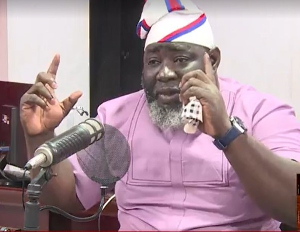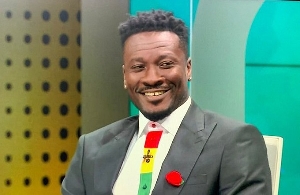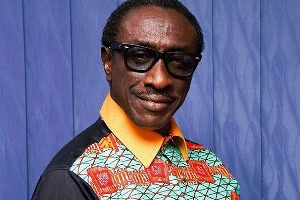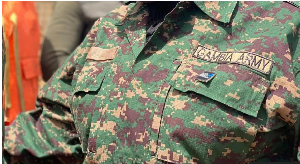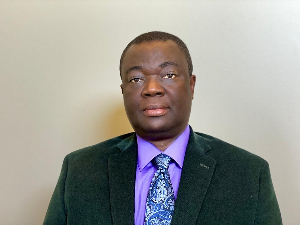A GNA feature by Francis Ameyibor
Accra, Sept. 12, GNA - Ghana's fifth successive presidential and parliamentary elections under the Fourth Republican Constitution is about 15 months away and as expected the various political parties, especially the ruling New Patriotic Party (NPP) and the main opposition National Democratic Congress (NDC), have activated their electioneering machine into motion.
As President John Agyekum Kufuor winds down his second and final four-year term, the NPP is facing a bigger version of the problem the NDC faced in 1998 as the then President, Jerry John Rawlings wound down his final four-year term of office.
At the moment, about 20 leading members of NPP compared to six in 1998, have indicated their desire to contest for presidential ticket of the Party for Election 2008, even though, the Party is yet to formally open nominations on September 22, 2007.
ARRAY OF ASPIRANTS
The array of aspirants to succeed President Kufuor includes former Ministers of State, Members of Parliament (MP), Medical Practitioners, Lawyers, Contractors and Businessmen.The list includes: Vice President Alhaji Aliu Mahama; Mr Daniel Kwaku Botwe, Former Minister of Information and National Orientation and General Secretary of the Party; Nana Addo Dankwa Akufo-Addo, MP for Abuakwa and Former Minister for Foreign Affairs, Regional Integration and New Partnership For Africa's Development.
Others are Mr Yaw Osafo-Maafo, MP for Akim Oda and Former Minister of Finance and Economic Planning and Education, Science and Sports; Dr Arthur Kwabena Kennedy, a medical doctor based in the United States of America; the Reverend Professor Mike Ocquaye, MP for Dome Kwabenya and Former Minister of Communications and Energy; Dr Kofi Konadu Apraku, MP for Ofinso North and Former Minister of Trade and Industry and President's Special Initiatives; Dr Kwame Addo-Kufuor, MP for Manhyia and Former Minister of Defence and Mr Kwabena Adjei Agyepong, Former President's Spokesman and Press Secretary.
The rest are Prof. Kwabena Frimpong-Boateng, Heart Surgeon and Former Chief Executive Officer of Korle-Bu Teaching Hospital; Captain Nkreabea Effah Dartey (Rtd), MP for Berekum and Former Deputy Minister of the Interior; Mr Alan Kyerematen, Former Minister of Trade, Industry and President's Special Initiative (PSI); Mr Hackman Owusu-Agyemang, MP for New Juabeng North and Former Minister of Water Resources, Works and Housing and Mr Mohammed Musah, a Former Regional Youth Organiser of the Party.
HISTORICAL PERSPECTIVE
At the October 24, 1998 National Delegates' Conference of NPP, the then Candidate Kufuor, who had led the Party into Election 1996 but lost to Former President Jerry John Rawlings, again defeated six other leading members to win the slot to lead the Party for the second time for Elections 2000.The official results declared by the Electoral Commission at the close of polls gave Candidate Kufuor, 1,286 votes, representing almost 65 per cent of the total votes cast; Nana Akufo-Addo had 628 of the votes cast (31 per cent) and Dr Apraku received 52 votes. The remaining aspirants, Mr Kwame Kodua, a Lawyer; Mr Malik Alhassan Yakubu MP for Yendi and current Second Deputy Speaker of Parliament, and Mr John Henry Mensah, Former Senior Minister and Former Minority Leader, had eight, seven and three of the total votes cast, in that order.
Nine votes were rejected and seven delegates did not vote. Mr Owusu-Agyemang withdrew from the race, a decision he said, was in response to a call by the Party's supporters for unity.
"Although I have met the financial requirements of a prospective candidate and have all the qualities needed to lead the Party, I declare my decision to withdraw from the current race in the interest of consensus building and to allay the fears of our supporters," he said at the time.
As the clock winds down to the epic Congress on December 22,2007 political analysts GNA spoke to have predicted an acrimonious electoral campaign as the numerous presidential aspirants crisscrossed the country to canvass for votes.
THE SELF-DESTRUCT BUTTON
The question many political pundits have asked is: "Will the NPP press the self-destruct button?" The Ghanaian electorate and political observers are watching the developments with keen interest. The various aspirants have intensified their vigorous campaigns to woo the delegates to cast their votes in their favour during the Congress.The mode of operations includes the formation of "friend clubs", building clout based on ethnic or class affiliations, setting up of websites and buying pages in newspapers and time on the airwaves to sell themselves.
Various leading members have expressed concern about the campaign format of the aspirants and their supporters, which seemed to have created personality blocks within the political family of the Danquah-Busia-Dombo tradition.
ATTITUDE OF SOME ASPIRANTS
In a cautious statement, Professor Al-Hassan Wayo Seini, NPP Former National Vice Chairman, said for a Party that had the incumbent President, the attitude of some of the aspirants and their supporters created the erroneous impression that President Kufuor was being rushed out of office.He said: "If all that we hear in both the print and electronic media are about presidential hopefuls rather than the achievements of the government, then all that we are doing is committing suicide long before Election 2008 are due.
"Yet, any successful candidate in the long run will have to base his campaign primarily on the success of the government before making other additions that may border on his own visions. "My feeling is that for a congress that will certainly be taking place in December the NPP presidential hopefuls ought to be patient until the whistle is blown for the kick-off."
Another leading member also expressed similar sentiments noting that the Party may break up after congress if the current wave of competition for the presidential candidature remained unchecked by the National Executives of the party.
Alhaji Issahaku, NPP Constituency Chairman for Gambaga-Nalerigu in the Northern Region, explained that "not only are the number of people vying to succeed President Kufuor too many, but many of them are accomplished 'heavyweights' who command some considerable support and following in the Party'".
"If all these men think that they are good enough to lead the nation, then they could be forced to pursue their ambition with another political vehicle if they fail to win the NPP slot," he said.
POLITICAL GROUPINGS
Another hurdle that the NPP faces is the emergence of political groupings within the Party whose allegiance hinges on either ethnic or religious linkages.During the 1998 contest, the "Group of 15" (G15) emerged from the Nana Akufo-Addo camp, which many perceived as anti-Kufuor and against any other aspirant, a claim Nana Akufo-Addo denied vehemently. He explained that the formation of the G15 was not to create rancour and division in the rank and file of the Party but to help to solve the financial problems confronting the Party at the time. With the activities of the Groups, according to Prof. Frimpong-Boateng, presidential aspirants, risked polarising the Party, stressing that their continuous existence was not in the best interest of the Party as far as the Elections 2008 was concerned. Dr Kwame Amoako Tuffuor, a member of the National Council of Elders, considers this as a dangerous phenomenon, saying the agenda of these groupings should be focused rather in the direction of the Party and not individuals.
He said emergence of the groupings presupposed that something had created a vacuum in the political system of the Party and suggested that the Party hierarchy should create directions for the groups. Another school of thought, however, sees the emerging development as good omen for the Party as it has generated interest and also confirmed the NPP as the doyen of Ghana's democracy.
Mr Akenten Appiah-Menka, the Ashanti Regional Chairman of the Council of Elders of the Party said: "I see nothing wrong with the increasing number of aspirants jockeying for the party's 2008 flag bearership, since the Party believes and practises the principles of democracy.
"I admit that at the end of the day just a few of them ... I can vouch that not many can make it to the party's congress." Mr Appiah-Menkah debunked speculations that too many aspirants would produce a non-credible and non-popular presidential candidate.
MONEY MATTERS
Some political economists have estimated that the various aspirants need approximately 20 billion cedis to be able to launch an effective bid for the presidential slot of the party.While it may be argued that this could be unhealthy for Ghanaian politics, the counter argument is that if you could not raise billions of cedis to contest for the elections how can anyone convince the whole nation to vote for him or her as presidential candidate. It is about time the NPP pooled resources to become a formidable contender in the race to the "Flagstaff House".
Already, Mr Owusu-Agyemang has donated a club house in Accra to the Party while Nana Akufo-Addo has slotted in 243 motorbikes among others who have elected to pay for the running on the Party at the regional and constituency levels.
NPP's political tradition, the Danquah-Busia-Dombo ideology, has been in the opposition for about 30 years, after losing power in 1972 through a coup d'=E9tat led by General Kutu Acheampong that overthrew the Dr Kofi Abrefa Busia's Progress Party Government.
To the credit of the NPP's political tradition, the Danquah-Busia kept its unity, no matter how fragile until 1979, when it split into two - the Popular Front Party (PFP) and the United National Convention (UNC), which led to their defeat by the Nkrumaists' People's National Party (PNP) of Dr Hilla Limann.
The Danquah-Busia-Dombo tradition learnt from its electoral defeat of 1979 and when the ban on party politics was lifted in 1992, the NPP was formed from the amalgamation of the remnants of PFP and UNC. It is the hope of this Writer that December 22, 2007 would come and go and leave the NPP intact and those who would lose would quickly lick up their wounds, mend fences and join forces with the winner to accomplish the task of retaining political power.


